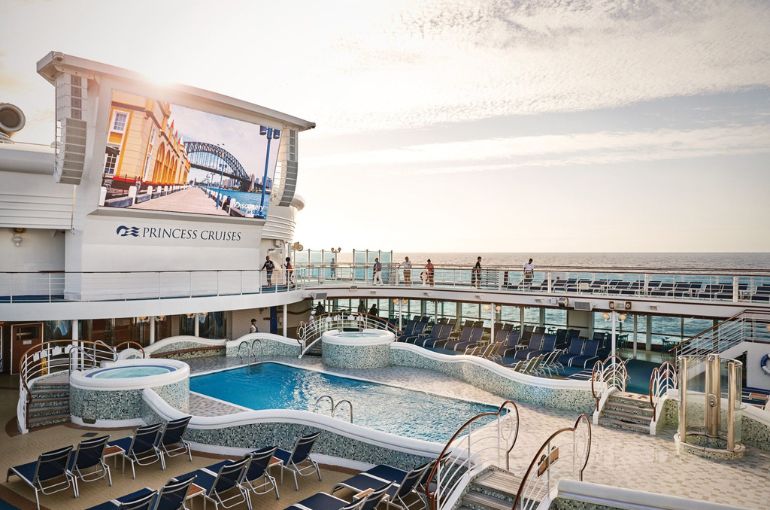10N Hokkaido- Diamond Princess
Diamond Princess is a treasure trove of exceptional delights waiting to be discovered. Dine on freshly prepared sashimi in Kai Sushi, watch street performers in the dazzling Atrium, or take in a lavish production show in our state-of-the-art theater. And for a unique treat visit the Izumi Japanese Bath, the largest of its kind at sea.
S$2,161
- Free onboard credit up to USD100 per cabin.(Book by 19 Aug 25).
- 3rd and 4th guests cruise fares free.
- Up to 40% off cruise fares.
- Prices are in Singapore dollars on twin sharing basis.
- Prices exclude associated taxes and gratuities.
- Prices are subject to change without prior notice.
- Port arrival and departure times are approximate and subject to change without notice.
- OBC offered to 1st and 2nd guests only. Not applicable to third/fourth berth guest.
- Free OBC is subject to inventory control.
- Other terms and conditions apply.
- Price is correct as at 12Aug25. base on the lowest available class.
Day 1 - Tokyo
Day 2 - At Sea
Day 3 - Nagasaki, Japan
Day 4 - Jeju (Seogwipo), South Korea
Day 5-6 - At Sea
Day 7 - Hakodate, Japan
Day 8 - Muroran, Japan
Day 9 - Aomori, Japan
Day 10 - At Sea
Day 11 - Tokyo (Yokohama), Japan
- Port arrival and departure times are approximate and subject to change without notice.
- Please note that prices are listed per person based on Interior double occupancy cabin. Price excludes flight, port charges, gratuities, and other personal expenses. Prices are correct at time of print and subject to change without prior notice. Prices are subject to change due to fluctuations in airport taxes and fuel surcharge. Intermediate discounts may have been taken and fares may remain at discounted levels after this promotion. Taxes, Fees & Port Expenses are subject to change and Princess reserves the right to collect any increases in effect at the time of sailing even if the fare has already been paid in full. Prices are subject to change based on availability. .
All travellers are responsible for obtaining the appropriate visa, vaccinations and health certificates. All travellers are also responsible for ensuring that their passport is valid for at least six months at point of entry into travel destination.
Health and safety protocols, guest conduct rules, and regional travel restrictions vary by ship and destination, and are subject to change without notice. Due to evolving health protocols, imagery and messaging may not accurately reflect onboard and destination experiences, offerings, features, or itineraries. These may not be available during your voyage, may vary by ship and destination, and may be subject to change without notice.


.jpg)
.jpg)

